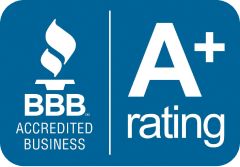 Payment is referred to as “premium.” The monthly payments you make for your health insurance plan are known as Medicare Advantage (Medicare Part C) premiums. You can better evaluate if Medicare Advantage insurance is right for you and, if so, which sort of plan you can afford by understanding how premium payments work.
Payment is referred to as “premium.” The monthly payments you make for your health insurance plan are known as Medicare Advantage (Medicare Part C) premiums. You can better evaluate if Medicare Advantage insurance is right for you and, if so, which sort of plan you can afford by understanding how premium payments work.
A Medicare Advantage plan is health insurance provided by private insurance firms that have been approved by Medicare. It’s a single plan that covers both Part A and Part B of Original Medicare. Most plans also include prescription drugs, and many additionally include dental, vision, and/or other supplemental coverage.
Who Pays the Premium for Medicare Advantage Plans?
When you enroll in a Medicare Advantage plan, you continue to pay premiums for your Medicare Part B (medical insurance) coverage (Medicare Part C). The Part B premium rate is set by Medicare. The average Part B premium in 2022 is expected to be $158.50, but it might be higher depending on your income. 1 Those who get Social Security payments will pay a lower premium rate on average.
A Medicare Part C plan usually has a separate monthly premium. However, monthly payments are not required for all Part C plans. Part C plans often offer medically essential operations as well as prescription drug coverage (Medicare Part D) and other types of benefits such as dental and vision. The fee you may pay is utilized to cover Medicare Part C’s broader variety of services.
The Medicare-approved private insurance companies that offer Medicare Part C coverage choose which services the plans will cover, therefore monthly premiums vary by plan and state. Only once a year are insurance firms authorized to change the premium rate.
Find Medicare Plans in 3 Easy Steps
We can help find the right Medicare plans for you today
 How to Make Premium Payments
How to Make Premium Payments
Part B Medicare payments are paid directly by Medicare, whereas Part C rates are paid by the commercial insurance firm that administers your Medicare Advantage plan. You can pay Medicare and your private insurance carrier in the following ways.
Medicare Premium Payments: If you receive benefits from the Social Security Administration, the Office of Personnel Management, or the Railroad Retirement Board, Medicare will withdraw your Part B payments from your benefits check automatically. You will be sent a bill titled “Notice of Medicare Premium Payment Due” if you do not obtain these benefits. You can then pay by mailing a check, using online banking services, or enrolling in Medicare’s bill pay, which will automatically deduct the monthly fee from your bank account.
Payments to Private Insurance Companies for Medicare Part C: If your private insurance company charges a premium for your Medicare Part C plan, you can have your payments deducted from your Social Security income. However, this is not a one-time event. Before your Part C premium payments are collected, you must file a request to Social Security, which must be approved. If you don’t qualify for Social Security, you can send a check or have your premiums deducted automatically from your bank account.
Tips on How to Pay Medicare Premiums
To avoid losing coverage, make sure to pay both your Part B and Part C premiums on time. The best approach to avoid skipping a payment is to set up automatic deductions.
Make that your current postal address is on file with both Medicare and your Part C provider for bill delivery (especially if your premium is not automatically deducted from Social Security).
Make sure you don’t fall behind on your Medicare Part B payments for more than three months. Premiums are due on the 25th of each month, and if payments are not made by the fourth month, coverage will be terminated.
If you believe you will be late with a payment, contact your Medicare Part C provider. Private insurance providers have their policies when it comes to canceling plans due to nonpayment.
 What Is the Premium for Medicare Advantage?
What Is the Premium for Medicare Advantage?
According to the Centers for Medicare and Medicaid Services, the average monthly premium for Medicare Advantage plans in 2022 is $19. (CMS). Premiums for Medicare Advantage plans range from $0 to more than $100, depending on the type of plan and where you live. In general, premiums are less expensive than Medicare Part B premiums, which you must continue to pay. The expected Medicare Part B premium for 2022 is $158.50.
Premiums for Medicare Advantage Plans With Prescription Drug Coverage
According to the Kaiser Family Foundation, the average monthly premium for plans that include Medicare Part D prescription medication (MA-PD) benefits in 2021 will be $21. Enrollment weights the average monthly premium. As a result, the majority of consumers opt for the less expensive options.
The typical monthly rates for some of the many types of plans in 2021 are listed below (weighted by enrollment).
Monthly Premium Weighted by EnrollmentAverage Monthly Premium Weighted by EnrollmentAverage Monthly Premium Weighted by EnrollmentAver
HMO (Health Maintenance Organization) Medicare Advantage$18
Regional PPO (Preferred Provider Organization) Medicare Advantage $48
Local PPO for Medicare Advantage$25How Can My Medicare Part C Plan Have a $0 Premium?
It’s not uncommon to find Medicare Advantage plans with no monthly premiums. According to the Kaiser Family Foundation, by 2021, 96 percent of Medicare members will have at least one option for a zero-premium plan. “How can an insurance firm have no premiums?” you might think. That is an excellent question. It’s also simple to explain. The following is how the procedure works:
Medicare approves a private insurance company to provide members with Original Medicare (Part A and Part B).
The insurance company is now liable for paying claims made by members.
For the expense of paying claims, Medicare pays the insurance carrier a flat charge.
This payment is used by the insurance company to offer healthcare coverage to its subscribers.
Contracts with healthcare providers (e.g., hospitals, doctors’ offices, etc.) usually save the insurance company more money.
The insurance business transfers these savings to members, resulting in a premium of zero dollars.
It’s crucial to keep in mind that just because you don’t have to pay any premiums for Medicare Advantage doesn’t imply the plan is free. For your Part C plan, you must still pay your Part B premium, annual deductible, copayments, and coinsurance.
 Medicare Advantage MSA: A Special Type of $0 Premium Plan
Medicare Advantage MSA: A Special Type of $0 Premium Plan
The Medical Savings Account (MSA) plan is another form of Medicare Advantage plan offered. This plan is unique in that it is not designed to cover Medicare Advantage premiums. The insurance provider is not passing on savings to plan participants with this $0 premium. When you enroll in an MSA plan, you must still pay your Part B payments, as with all Medicare Advantage plans.
MSA plans feature a high deductible as a trade-off for not having to pay a monthly premium. The deductible is the amount you must pay out-of-pocket for Medicare-covered services before the plan begins to pay for them. Money put into your MSA can be used to cover your deductible and other medical expenses.
How Does the Affordable Care Act Affect Medicare Advantage Costs?
Several improvements to Medicare Advantage programs were made as part of the Affordable Care Act (ACA). The majority of these reforms were related to the health insurance business in general, including preventative care provisions. The ACA will fix the Medicare donut hole in 2020, but it does not mean that prescription medication coverage will be free. Various costs are still the responsibility of the beneficiaries.
However, one of the most significant changes to Medicare Part C plans is that insurers are no longer authorized to charge plan participants more for some procedures, such as chemotherapy than the Original Medicare would charge. Depending on your plan, this may have an impact on expenses. Age, location, tobacco usage, individual vs. family enrollment, and plan type are the only five characteristics that influence your monthly premium costs.
Find Medicare Plans in 3 Easy Steps
We can help find the right Medicare plans for you today
Can I Get Help Paying for Medicare Advantage?
Yes, the Centers for Medicare and Medicaid Services (CMS) offers Medicare Savings Programs (MSPs) to help you pay for your Medicare Advantage (Medicare Part C) plan (CMS). MSPs can help pay for some of your plan costs, including premiums if you fulfill the standards following income, disability, or certain chronic health conditions. Paying for a Medicare Advantage Special Needs Plan (SNP)
To be qualified for a Special Needs Plan, you must have Original Medicare (Part A and Part B) as well as a qualifying medical condition (SNP). Some folks who meet these criteria are also eligible for Medicaid. Medicaid helps pay for most of the costs of joining a plan for persons who have both Medicare and Medicaid. Premiums, coinsurance, and copayments are all included in these expenditures.
Medicaid must cover copayments and coinsurance for certain people participating in MSPs, according to CMS. Medicaid, on the other hand, is not obligated to assist in the payment of Medicare Part C insurance premiums. Federal Medicaid laws let each state Medicaid agency select whether or not to pay Medicare Part C premiums for qualified Medicare beneficiaries enrolled in an MSP.
Part C SNP enrollees who have both Medicare and Medicaid, as well as those who do not, may be charged a premium by an insurance firm. In this instance, you would be responsible for the entire Part C premium (if there is one). The fundamental expenses of SNPs are often the same as those of regular Part C plans. This implies you may pay about the same average monthly premiums as the table above or even none at all.








